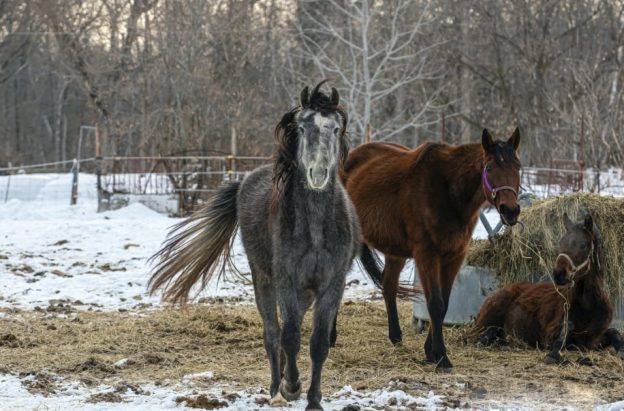Owners have a responsibility to ensure horses are happy and healthy. It will keep them in peak condition, whether they are hard workers or have a more leisurely lifestyle. A big part of this is ensuring they have a suitable diet, including the right horse feed and enough forage. You need to avoid mistakes here because it can have a huge impact on health and wellbeing. It could even lead to problems like legs swelling.
The impact of diet
Most owners will have experience with horses having swollen legs. They can happen for a number of reasons, including injury, infection, allergic reaction, or not having enough room to move around. Less commonly known is the fact that overfeeding and too much protein in the diet can cause swelling too.
Overfeeding leads to several issues that can cause swollen legs in horses. Firstly, it could lead to fluid building up. Secondly, a diet with too much grain can cause physitis, especially in young horses, because they are getting too many calories. Thirdly, and most worryingly, if you overfeed a horse you increase the risk of laminitis.
What to do?
Luckily, if a horse has swelling in the legs because of their diet, in many cases it can clear up by making some changes. This can work as long as overfeeding has not caused a serious medical condition. The best thing to do is talk to a vet or equine nutritionist. They can advise you about horse feed and diet.
It is also a good idea to assess the swelling yourself to get a better understanding of what you could be dealing with. You need to get hands on here, checking the swollen area for tenderness and heat. If it is hot and painful, this is known as acute swelling. It can indicate your horse has an injury or infection. However, if there is no heat or pain, it is non-acute swelling. It could be things like filled legs from standing too long, oedema, or even inflammations because of old injuries.
If you check a swollen leg and there is heat or the horse flinches, call a vet. They can do a more thorough check and diagnose the exact cause. They’ll then choose treatment. It can prevent serious problems like lameness.
If the swelling is non-acute, or the vet says it isn’t because of an injury or medical condition, you can try a few different things to treat it. Cold water and ice can help, just like humans. Massaging can be great to improve circulation. Exercise and movement is good here too, especially for tackling fluid build up and to burn calories.
Choose the right horse feed
If you want happy, healthy horses and to reduce the risk of swelling in the legs, make sure the diet is right. Most importantly, ensure it matches the amount of exercise the horse is doing. This is a really good way to reduce the chance of overfeeding. It is also important to pay attention to the amount of protein, carbs, and starch in feeds.
JS Hubbuck Ltd is a fantastic company if you need horse feed. We’ll readily provide product details to help you choose the right feeds for hard workers or leisure and older horses. Contact us to learn more.

